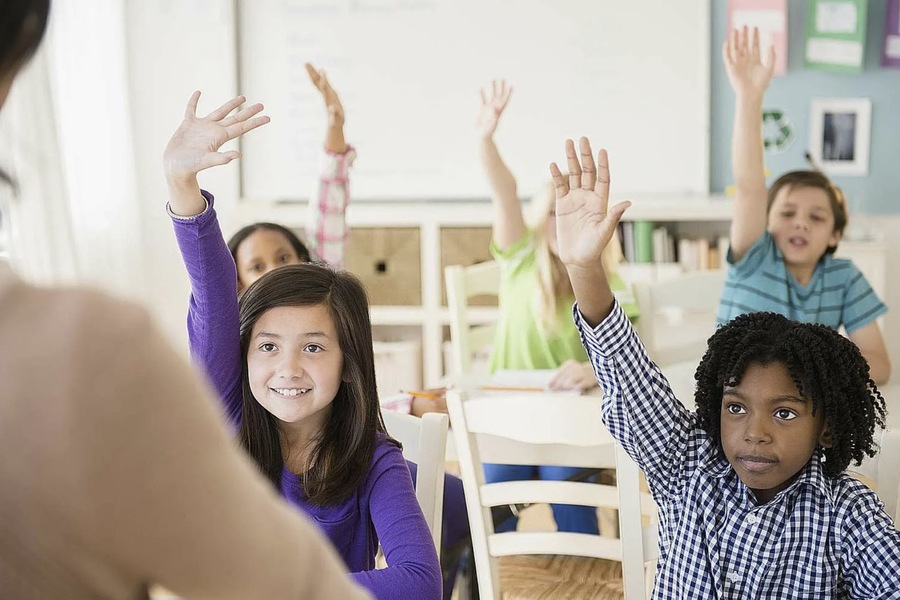Teachers hold a critical role in shaping the future of students, fostering environments that cultivate self-esteem and academic success. Their influence goes beyond the classroom, deeply affecting the emotional and intellectual development of their students. The International Indian School Ajman exemplifies how educational institutions can promote self-esteem and academic growth through various initiatives that create supportive and enriching atmospheres for students.
The Role of Teachers in Developing Self-Esteem
Understanding Self-Esteem
Self-esteem reflects an individual’s perception of their own value and worth. High self-esteem is associated with confidence, resilience, and a positive outlook on life, whereas low self-esteem can lead to feelings of inadequacy and depression. For students, self-esteem is essential as it influences their academic performance, social interactions, and overall well-being.
Creating a Positive Classroom Environment
A positive classroom environment is foundational for fostering self-esteem. Teachers can establish such an environment by:
- Encouraging Positive Interactions: Promoting respect and kindness among students helps create a supportive atmosphere. Research shows that students who feel respected and valued by their peers tend to have higher self-esteem.
- Celebrating Achievements: Recognizing both academic and personal accomplishments, no matter how small, boosts students’ confidence. Public recognition of achievements, such as displaying student work or awarding certificates, reinforces the value of effort and perseverance.
- Providing Constructive Feedback: Constructive feedback focuses on areas for improvement without diminishing a student’s self-worth. Teachers should balance criticism with praise, emphasizing strengths while offering guidance for improvement.
- Fostering Inclusivity: Ensuring all students feel included and valued, regardless of their background or abilities, is crucial. Inclusive practices help students develop a sense of belonging, essential for building self-esteem.

Building Strong Teacher-Student Relationships
Positive teacher-student relationships are vital for boosting self-esteem. Teachers who show genuine interest in their students’ lives and well-being create a sense of security and trust. These relationships are built through:
- Active Listening: When teachers listen attentively to students, it conveys that their thoughts and feelings are important, enhancing their self-worth.
- Personalized Support: Understanding the unique needs and strengths of each student allows teachers to provide tailored support, making students feel valued and understood.
- Mentorship: Teachers who act as mentors guide students through academic and personal challenges. Mentorship fosters a sense of guidance and reassurance, contributing to higher self-esteem.
Strategies for Academic Growth
Setting High Expectations
High expectations from teachers can motivate students to achieve their full potential. When teachers believe in their students’ abilities, it instills a similar belief in the students themselves. The Pygmalion effect supports this concept, suggesting that higher expectations lead to improved performance.
- Clear and Challenging Goals: Setting clear, achievable, yet challenging goals motivates students to strive for excellence. These goals should be specific and aligned with the students’ abilities and interests.
- Providing Resources and Support: Ensuring students have access to the necessary resources and support to meet high expectations is crucial, including study materials, extra help sessions, and emotional support.
Implementing Effective Teaching Methods
Effective teaching methods cater to diverse learning styles and help students grasp complex concepts. Some impactful methods include:
- Active Learning: Encouraging active participation through discussions, group work, and hands-on activities makes learning engaging and effective. Research indicates that active learning enhances retention and understanding.
- Differentiated Instruction: Tailoring instruction to meet the varied needs of students ensures all learners can succeed. This may involve varied teaching techniques, materials, and assessments.
- Technology Integration: Utilizing technology in the classroom can enhance learning experiences. Interactive tools, online resources, and educational apps cater to different learning preferences and make learning more accessible.
Encouraging a Growth Mindset
A growth mindset, as defined by psychologist Carol Dweck, is the belief that abilities and intelligence can be developed through effort and perseverance. Teachers can cultivate a growth mindset by:
- Praising Effort, Not Just Outcomes: Emphasizing the importance of effort over innate ability encourages students to embrace challenges and learn from failures.
- Modeling a Growth Mindset: Teachers should demonstrate their own commitment to learning and improvement. Sharing personal experiences of overcoming challenges can inspire students.
- Providing Opportunities for Reflection: Encouraging students to reflect on their learning processes and identify areas for growth promotes self-awareness and resilience.

The Impact of Teacher-Driven Self-Esteem and Academic Growth
Academic Performance
Numerous studies show that students with high self-esteem and strong teacher support perform better academically. According to the UAE Minsitry of Eductaion, students who feel supported by their teachers are more likely to achieve higher grades and test scores.
- Improved Motivation: Students who believe in their abilities are more motivated to put in the effort required for academic success.
- Better Engagement: A supportive and positive classroom environment keeps students engaged and interested in learning.
Emotional and Social Development
Teachers who focus on building self-esteem also contribute to the emotional and social development of their students. High self-esteem is linked to:
- Better Social Skills: Confident students are more likely to engage in positive social interactions and build healthy relationships.
- Resilience: Students with high self-esteem are better equipped to handle setbacks and challenges, both academically and personally.
- Reduced Anxiety and Depression: A positive self-image helps mitigate feelings of anxiety and depression, leading to improved mental health.
Conclusion
Teachers play an indispensable role in inspiring self-esteem and academic growth in students. By creating a positive classroom environment, building strong relationships, setting high expectations, and implementing effective teaching methods, teachers can significantly impact their students’ lives. Prioritizing the emotional and intellectual development of students helps shape a brighter future for them and society as a whole.

Surfer, feminist, music blogger, Saul Bass fan and front-end developer. Working at the nexus of simplicity and elegance to craft experiences that go beyond design. Concept is the foundation of everything else.
